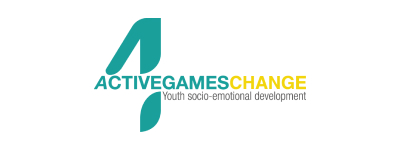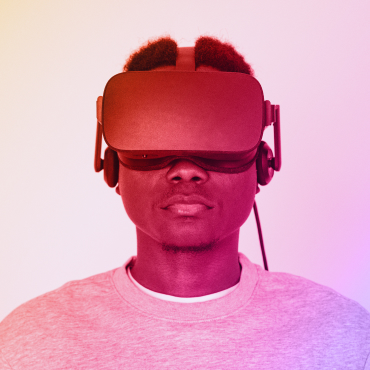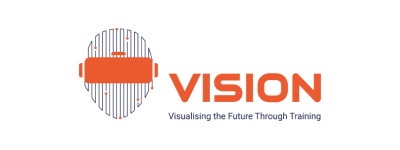
Active Games 4Change
Sport and physical activity learning environment for citizenship, emotional, social and e-competences training

Virtual reality for training inmates
Timeframe
12/2020 – 11/2022 (24 months)
Get in touch

The ViRTI project arises from the need to improve the educational environment and expand the training offer for inmates, who generally have limited access to technical facilities because they are in a closed and restricted environment.
Thus, ViRTI aims to use virtual reality technologies by creating virtual environments, compensating for the scarcity of resources (such as laboratories, materials and tools) in prison facilities.
In addition, by introducing interactive and gamification features in the learning contents provided to inmates, it will be possible to attract more participants and maintain their motivation, thus reducing drop-out rates.
With this project, it will be possible to increasingly encourage the application of content based on virtual reality in prisons, which will collaborate with education and training providers for this purpose. In this way, more inmates will benefit from this added value, as they will develop skills and competences, and acquire knowledge about sectors of the economy where there is a scarce workforce, hence increasing their employability.

Develop the use of virtual reality technologies for inmates’ training.
Determine the conditions for the successful introduction of virtual reality technologies in prison services for the training of prisoners.
Motivate inmates to engage in training.
Leverage on the interactions enabled by virtual reality to develop the inmates’ basic and transversal competences.
Develop guidelines for the use of virtual reality in the training of prisoners.
Research about virtual reality for education and training in several types of prison and detention establishments (including juvenile facilities):
How can virtual reality be used to develop links with the external economic world and, in particular, prepare inmates for the world modern job market?
Virtual reality capsules based on 360° videos with interactive features to be tested with inmates, in France, Spain and Portugal.
A guide for implementing VR for education and training in prisons, integrating the conclusions of the piloting and key findings from the survey.

Sport and physical activity learning environment for citizenship, emotional, social and e-competences training

Assessing the Risk of Isolation of Sentenced and Accused: Enhancing the Capacity of Correctional Services to Work with Convicted Children

Cross-sectoral awareness building on mental health needs in the criminal justice system and on release

Blended Learning Environment for European Prisoners

Bringing Safety on the Roads

Coding in prison as a valuable OUTside tool for employment

Taking Further Prisoners’ Education Projects in Using Dialogue as Preparing for Release

European Interaction Guidelines for Education Professionals when working with Children in Juvenile Justice Contexts

European Induction Support for Adult Learning Professionals to the Correctional Criminal Justice System

Fair predictions of gender-sensitive recidivism

European Framework of Competences for Community Professionals in Gang Environments

Identifying future capabilities for Community Policing

Key Competencies for Minor Offender Reintegration

Development and testing of a process chain for the placement of former detainees as specialists in the labour market

Peer Pro-Social Modeling in Probation

Preventing Emotional and Sexual Abuse Among Young People

A flexible, multidisciplinary and transnational VET model for the PROBATION services and practitioners

Strengthening the capacity of criminal justice professionals and volunteers

New sports method for prisons as a tool to support competency development, positive values, and reintegration

Systematic Transition from Prison into the Labour Market

Training of Refugee Offenders by Virtual Reality

Secured digital education system for vocational skills for youngsters in closed institutions

Integrating Young Offenders Through the Blue Economy

Visualising the Future Through Training

Developing and Using Virtual Reality Technology for the Rehabilitation of Drug Users in Probation Services

Reducing Reactive Aggression through Virtual Reality